Disorderly Conduct: Unprotected Aggressive Conduct or Protected Speech?
Police officers often will arrest drunk individuals to quell disturbances and satisfy complaining parties under a broadly defined crime under Tennessee law called disorderly conduct. If a person becomes unruly or engages in what police deem to be drunken disorderly conduct, police officers may charge the person with violating Tenn. Code Ann. §39-17-305, which provides:
(a) A person commits an offense who, in a public place and with intent to cause public annoyance or alarm:
(1) Engages in fighting or in violent or threatening behavior;
(2) Refuses to obey an official order to disperse issued to maintain public safety in dangerous proximity to a fire, hazard or other emergency; or
(3) Creates a hazardous or physically offensive condition by any act that serves no legitimate purpose.
(b) A person also violates this section who makes unreasonable noise that prevents others from carrying on lawful activities.
(c) A violation of this section is a Class C misdemeanor.
Tennessee’s disorderly conduct law often applies to those who engage in public drunkenness or public disorderly conduct. In other words, getting drunk and loud in public can put you at risk for a disorderly conduct charge.
The law prohibits “fighting … violent or threatening behavior,” “refusing to obey an official order to disperse”, creating a “hazardous or physically offensive condition,” or even engaging in “unreasonable noise” that prevents others from carrying out their lawful activities. Thus, getting drunk and punching a person could land you a disorderly conduct charge. Getting drunk in public and pushing a law enforcement officer could get you a disorderly conduct charge. Getting drunk in public and shouting at the top of your lungs could be considered “unreasonable noise” within the meaning of this broadly defined law.
There may be valid defenses to a disorderly conduct charge, especially if the officer focuses his attention on the content of a person’s speech in issuing a citation. People have a First Amendment, free-speech right to criticize the government, even police officers. The U.S. Supreme Court declared in City of Houston v. Hill (1987) that “the First Amendment protects a significant amount of verbal criticism and challenge directed at police officers” and that “the freedom of individuals verbally to oppose or challenge police action without thereby risking arrest is one of the principal characteristics by which we distinguish a free nation from a police state.” The Supreme Court also has determined that police officers due to their specialized training are more equipped to deal with verbal abuse than other citizens.
The Tennessee Court of Criminal Appeals once ruled that a person did not commit disorderly conduct when he yelled “sooey” (slang for “pig”) at a police officer. The Court of Criminal Appeals explained in Garvey v. State (1975) that “[t]his word addressed to a police officer trained to exercise a higher degree of restraint than the average citizen would not be expected to cause a breach of the peace.”
The question in a disorderly conduct case based on speech often will come down to whether or not the charged individual uttered what are called “fighting words.” The U.S. Supreme Court defined fighting words in Chaplinsky v. New Hampshire (1942) as those “words which by their utterance inflict injury or cause an immediate breach of the peace.” Fighting words are a narrow, unprotected category of speech not protected by the First Amendment. However, not all profane speech is considered fighting words. In fact, much profanity is protected speech.
It can be a difficult question whether a person’s speech is protected by the First Amendment or crosses the line into unprotected fighting words. Key factors include whether a person only spoke intemperately or also engaged in aggressive conduct; whether a person repeatedly uttered speech in a loud and drunkenly fashion; whether a person spoke to a police officer or another citizen; and whether a person uttered racial slurs. The most important fact often is whether the officer focused on aggressive conduct, such as spitting at the officer, clenching a fist at the officer, or engaging in other behavior perceived as threatening.
If you have been charged with disorderly conduct, you need an experienced criminal defense attorney well versed in this area of law. There may be some valid constitutional, free-speech defenses available to you. Attorney Philip Clark at PNC Law not only is an experienced criminal defense attorney but he also served many years as a police officer before he went to law school. He has the experience and knowledge necessary to provide you with a vigorous and comprehensive defense.
Connect with Philip N. Clark right away!
(615) 785-2000

